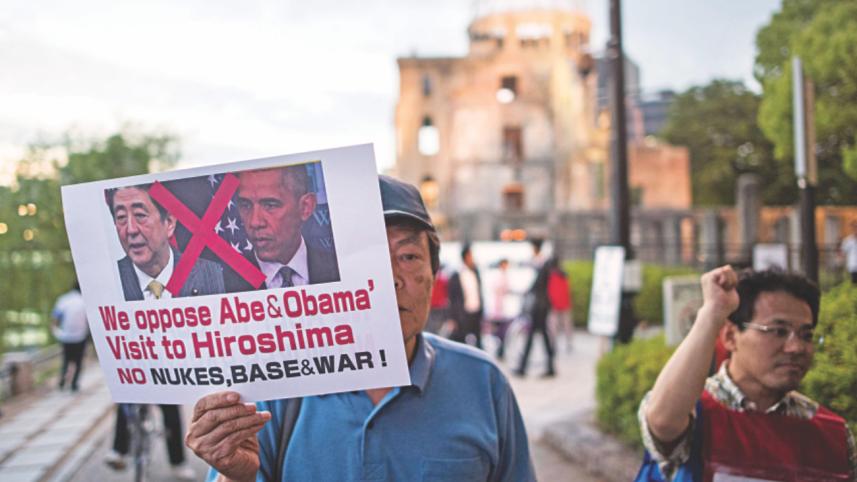'I still hate the glow of the setting sun'

For survivors of the world's first nuclear attack, the day America unleashed a terrible bomb over the city of Hiroshima remains seared forever in their minds.
Though their numbers are dwindling and the advancing years are taking a toll, their haunting memories are undimmed by the passage of more than seven decades.
On the occasion of Barack Obama's offering of a floral tribute today at the cenotaph in Hiroshima Peace Memorial Park -- the first ever visit by a sitting US president -- some of them share their stories with AFP.
The bombing claimed the lives of 140,000 people, some of whom died immediately, while many succumbed to injuries or radiation-related illnesses in the weeks, months and years afterwards.
Emiko Okada: Now 79, she was about 2.8 kilometres (1.7 miles) from ground zero and suffered severe injuries in the blast. Her sister was killed.
"All of a sudden a flash of light brightened the sky and I was slammed to the ground. I didn't know what on earth had happened. There were fires everywhere. We rushed away as the blaze roared toward us.
"The people I saw looked nothing like human beings. Their skin and flesh hung loose. Some children's eyeballs were popping out of their sockets.
"I still hate to see the glow of the setting sun. It reminds me of that day and brings pain to my heart.”
Keiko Ogura: Now 78, she has devoted her life to keeping alive the memory of the devastating day.
"Shortly after (the bomb exploded) it rained. It was a sticky black rain and made my clothes wet.
"I saw a line of seriously burnt people, like silent ghosts. Suddenly, a girl grabbed my leg and said in a weak voice: 'Give me water.' Others also said: 'Water. Water. I brought water to them, but some died right after they drank it. I regretted giving it to them.”
"We faced the horror (of nuclear weapons). I tell everybody that it was hell. But they don't understand. There is no peace in Hiroshima. There is horror here."
Sunao Tsuboi: Now 91, he is co-chairperson of the Japan Confederation of A- and H-Bomb Sufferers Organizations. He suffered serious burns and developed cancer and other diseases, but remains active in his lifelong campaign for a nuclear free world.
"An apology doesn't matter. I just want (President Obama) to come and visit Hiroshima and see real things and listen to the voice of survivors."
 For all latest news, follow The Daily Star's Google News channel.
For all latest news, follow The Daily Star's Google News channel.